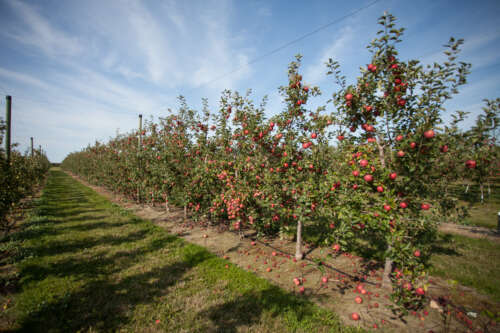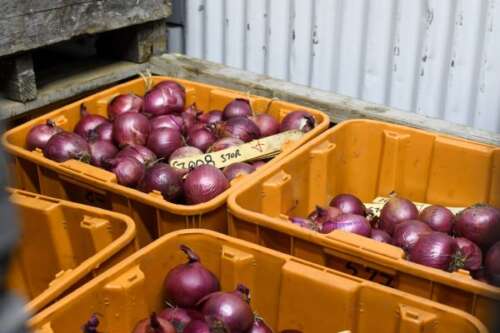 The government of Ontario is investing $6.52-million in University of Guelph research to help find ways to prevent or control costly crop diseases and pests, improve soil health and water quality and quantity and boost productivity and profitability for farmers.
The government of Ontario is investing $6.52-million in University of Guelph research to help find ways to prevent or control costly crop diseases and pests, improve soil health and water quality and quantity and boost productivity and profitability for farmers.
These research projects are funded through the Ontario Agri-Food Innovation Alliance, a longstanding collaboration between the Ontario Government and the University of Guelph that elevates the agri-food sector through research and innovation excellence.
“The research we’re investing in is vital to helping Ontario’s hardworking farmers and food businesses be profitable,” said Ernie Hardeman, Minister of Agriculture, Food and Rural Affairs. “Now, more than ever, we need to support innovative solutions that improve production practices, protect our environment while stimulate growth in our agri-food sector.”
The funded research projects include:
• Improving food rescue and recovery in the province’s industrial, commercial, and institutional sectors
An estimated 35.5 million tonnes of food are lost or wasted in Canada annually, at a cost of $49.5 billion. Much of this waste occurs in the industrial, commercial, and institutional (ICI) sectors, where organics collection is not mandated and can be logistically challenging. Prof. Kate Parizeau will pilot-test a new cooperative-based food waste collection system focused on recovering and reusing food from the ICI sectors, and will analyze how policies can enable or constrain such efforts across the province.
 • Enhancing integrated pest management programs and options for leaf diseases in onions
• Enhancing integrated pest management programs and options for leaf diseases in onions
Stemphylium leaf blight, a leaf disease found in onions, was first reported in Ontario in 2008 and has proved to be difficult to control. Prof. Mary Ruth McDonald will build on previous research on fungicide use in onions to reduce disease risk by identifying effective new fungicides, investigating new technology to improve spray coverage, improving disease forecasting and spray timing and identifying early season fungicide resistance using PCR to identify resistance genes in the pathogen.
• Improving outcomes for Ontario apple producers though precision agriculture and labour efficiency strategies
Prof. John Cline will investigate the advancement of precision crop load management strategies and mechanical pruning in Ontario apple orchards. The overall goal is to reduce reliance on manual labour, increase orchard fruit quality, efficiency and profitability, and decrease the need for manual hand thinning and pruning.
“University of Guelph researchers proudly and enthusiastically generate powerful innovations through their world-class research, escalating the competitiveness of Ontario’s agri-food sector in the global marketplace, and catalyzing prosperity in this province. This has never been more crucial as we aim for economic recovery at this challenging time,” said Malcolm Campbell, vice-president (research).
“As Guelph researchers have done for nearly a century and a half here at Canada’s food university, we work for partners across the agricultural sector, making profoundly important discoveries, creating positively impactful innovations, fueling an economic powerhouse, and reinforcing the production of safe, dependable, sustainable, and nutritious food.”
All research projects are supported by strategies to ensure Ontario’s agri-food sector can benefit from the new knowledge, technologies and solutions developed through provincially funded research.
To learn about other OMAFRA funded projects, visit the research portal.